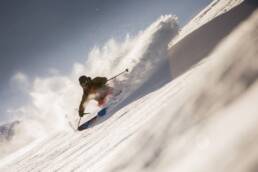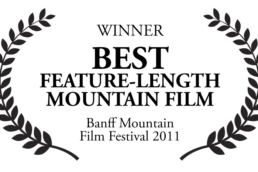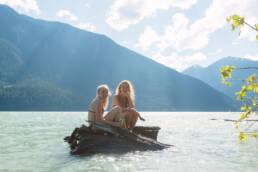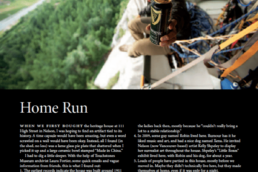Burton just announced huge sustainability goals it’s committed to achieving by 2020. We spoke with the company’s VP of Global Strategy and Insight to discover how they’re going to attain them.
It’s a dirty secret of the snow sports industry that the items we use to play in the outdoors are terrible for the environment. Like, really terrible. The coating that keeps your jacket water repellent? It’s made of long-chain perfluorocarbons that contain an eight-carbon molecule called perfluorooctanoic acid, which will never break down in your lifetime, or your great-great-grandchild’s lifetime. That snowboard you’re riding? There is so much glue and so many different materials in its construction it’ll never be recycled properly. Instead, the best solution for end-of-life boards has been to grind them up into a semi-toxic mush and use them as filler. But family-owned Burton Snowboards has just thrown down the gauntlet by promising to change all that, and more, by 2020.
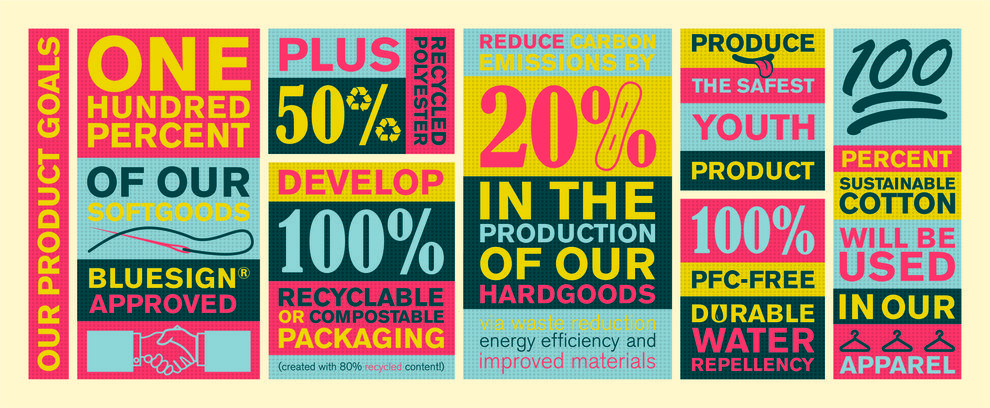
Founded by Jake Burton and Donna Carpenter in Vermont in 1977, the company has announced a list of goals that it will achieve in the next three years. By doing so, they’ll radically shift the outdoor industry. Some of the highlights include:
- All Burton clothing and soft goods will use 100% PFC-free durable water repellency and will only use 100% sustainable cotton and 100% bluesign-approved materials. (Bluesign is the highest environmental standard in the textiles industry that ensures clothes are produced with only the safest chemicals and materials, and that during production, only clean air and water are emitted.)
- Carbon emissions from the manufacturing of all hard goods, like its new Step On binding system, will be reduced by 20%.
- The CO2 footprint at global headquarters will be reduced by 20%.
- 75% of waste from landfill at global headquarters will be diverted.
- 100% of its factories will meet Fair Labor Association standards.
- 40% of all warranty claims will be repaired.
- An end-of-life program will be established at retail so everything is diverted from landfill.
Burton got serious about environmental responsibility about six years ago when employee Ali Kenney formed its sustainability department. Back then she consulted with one of the outdoor industry’s most outspoken environmentalists, Nicole Bassett (who went on to form the Renewal Workshop, which was featured in Coast Mountain Culture’s Summer 2017 issue), and came up with a plan to go greener. Since then the company has ensured 100% of its snowboards are made with bio-based resins and sustainably harvested wood. Its global factories are regularly audited to meet international labour and human rights standards. And Burton is collaborating with other companies to impact global policy through lobbying efforts at the state and federal level.
We spoke with Ali Kenney to learn more about Burton’s 2020 initiatives.
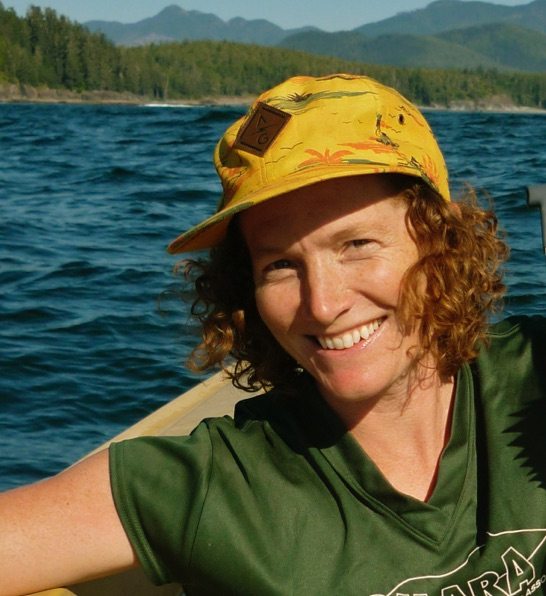
Hey Ali. These are some big goals for 2020, not just for Burton but for the industry as a whole, eh?
Yeah, with these latest commitments we’re not only leading the snow sports industry, but I personally think we’re sitting with the top couple of brands in the entire outdoor industry too, which is exciting.
Do you think it’s easier for a family-owned company to make big changes like these?
Definitely. With Jake and Donna [owners Jake Burton and Donna Carpenter] being such strong believers in this, we’re going to be able to do it better unlike any public company that has to go through all that bureaucracy….And we’re hoping that by making these changes, others will follow. In the early days I was able to say,” Look what Patagonia is doing, we should be doing that too.” Pretty much no one in the snow sports industry is really making fundamental change except for maybe a couple of tiny companies that are building their whole brand around that. And so I’m hoping everyone will be able to say, “Look what Burton is doing. Now we need to do something.”
As an aside, are you originally from Vermont?
Yeah, I grew up here. But I’ve lived all over the place between the ages of 18 and 28. I was an ice hockey player and lived in Denmark and Canada and all over the place. But then I got the job with Burton and was able to move back.
How much do Vermont ideals play a role in Burton’s business culture?
As a company I think we’re really unique in that we’re still in Vermont and that’s a testament to Jake and Donna’s values. Because if you look at the number of winter sports companies that all started in Vermont there are a lot and yet every single one is gone now because of tax savings pretty much. And we’re still here and that’s because it’s all about local ideals. There’s a spirit of resiliency and self-sufficiency and care for the land and respecting the outdoors here and I think that all ties in to our founder’s values….[Burton’s CEO] Donna and I work so closely together that we’ve become really close and that’s made it so that we can accelerate so quickly without me having to say, “This will be profitable within thirty days.” It’s like, “Trust me, this is the best thing we can do for our brand long term” and she’s like, “OK, let’s do it.”
 And you’ve already made some big changes on the sustainability front. Tell us about Burton’s ReRez for example.
And you’ve already made some big changes on the sustainability front. Tell us about Burton’s ReRez for example.
Yeah, that’s super cool. A bit of back story: we’ve been trying for six years to recycle snowboards at the end of life stage and the only thing that exists out there is to chop it up into tiny pieces and then use magnets to pull out the metal but otherwise you just get a crappy mix of complex materials that can only be used as a filler. Which is better than going to the landfill probably but it’s still not ideal. So we’ve been figuring out how to get around that. One part of the solution we came up with is called ReRez, which is a proprietary resin that we first used this past year. What it does is allow you to take apart an entire snowboard at end of life and separate out all the materials and recycle or reuse them. It’s a big big thing that we’re trying to use across our whole line.
Why 2020?
We went back and forth on that actually. We wanted it to be long term because we wanted it to be big commitments. But you have to find a middle ground because if you go too long no one does anything about it internally because they’re like, “Oh we’ve got tons of time to start this!” (Laughs) We wanted to have strong, dramatic changes to the way our company operates but we wanted it to be short enough that we could then split it up and do things in year one in order to get to this three-year goal. There’s not a lot of science to it. We just wanted it to be audacious and bold with a good timeline.
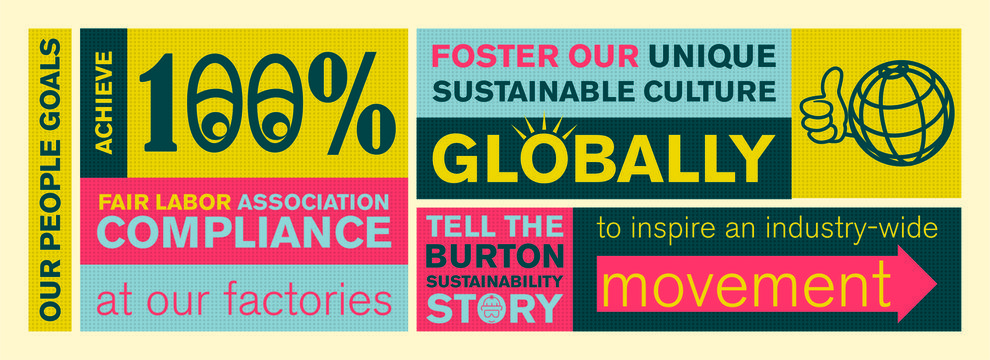 So you’re going to be busy in the next few years?
So you’re going to be busy in the next few years?
(Laughs) Yeah. We already are! These are really huge goals. One hundred percent sustainable cotton and 100% bluesign are easy for people to appreciate. But 20% carbon reduction across all hard goods doesn’t sound like a big deal on paper but that’s a really hard goal. No one’s doing anything like that in any industry that I know of. So we’re like, “Okay, wow, here we go. Buckle your seat belts. We gotta figure this out now.”
To learn more about ReRez, bluesign, and Burton’s 2020 sustainability initiatives, log on to burton.com/sustainability. And for a fun flashback of Jake Burton at a snowboard competition in 1980, watch this:
Vince Hempsall
Vince Hempsall lives in the beautiful mountain town of Nelson, British Columbia, where he spends his time rock climbing, backcountry skiing and mountain biking (when not working). He is the editor of Kootenay Mountain Culture Magazine and online editor for the Mountain Culture Group.
Related Stories
White On! Win a Trip to Chamonix
Chamonix s’il vous plais. For free y’all. Julbo Eyewear wants to send you on an epic freeski adventure. Say, if the…
Burton Kicks Off Its Showcase Week in Whistler
Burton Snowboard returns to Whistler for its annual Burton Week celebrations. Here's what's on the agenda. From…
Pics From Burton’s Camp On Event in Pemberton
This past weekend the Burton Camp On event was hosted in Pemberton, British Columbia, at a private location and the pro…
Next Level: Burton Introduces the Step On System
Burton Snowboards has introduced a new evolution in snowboarding bindings. Called the Step On system, it allows…



